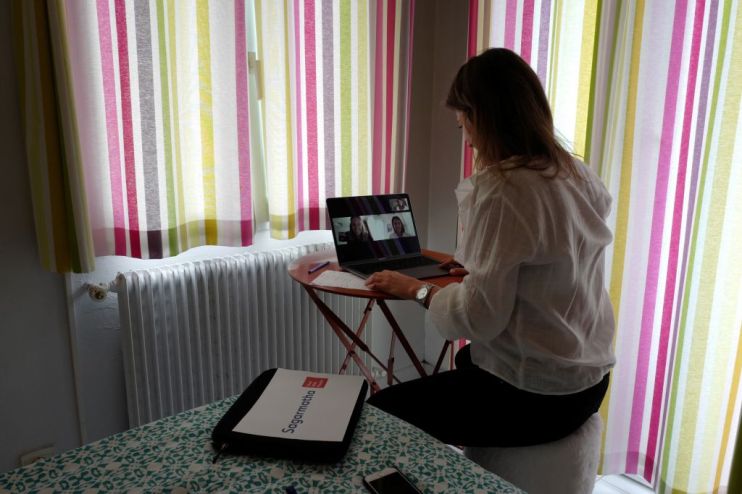Working from home takes toll on younger generations, survey finds

Working from home is disproportionately affecting young people, according to new research, as fears of fresh local lockdowns around the country continue to hamper a return to the office.
More than 85 per cent of 1,500 office workers surveyed by design firm Oktra said they struggled with the switch to homeworking during the pandemic.
Younger workers have been the most affected by the shift, with more than two-thirds of employees aged between 16 and 34 saying their home set-up was less conducive to work than the office.
Half of young workers surveyed said they feared working from home would hamper their career development, while almost 90 per cent said they missed the social interaction and networking that comes with office life.
“It all points to a generation of potential future leaders who are feeling increasingly less committed to their employers, their work culture and their professional future,” said Oktra chief Craig Smith.
“Of course no-one is suggesting that all staff should be compelled to return to their offices right now, but we are clearly seeing that in the longer term the physical office environment plays a key role in the recruitment, retention and performance of staff and consequently of the long term performance of many companies.”
London offices
It comes after the Prime Minister last month U-turned on advice to return to work to revive the UK’s ailing high streets, instead telling employees to “work from home where possible” for at least six months to curb a sharp spike in infections across the country.
But business executives based in the capital have warned that scrapping the commute has skewed productivity, and will have damaging effects for employees in the long-term.
Barry Horner, chief executive of City-based financial planning consultancy Paradigm Norton, said: “Remote working is having a negative impact on our business, particularly around the speed of execution.
“We are starting to spot the signs that being at home is just not working for some of our team. We really want to support government guidelines but at the same time we have an obligation to the team and we can see that they are starting to struggle. That’s bad for our staff and ultimately bad for our business.”
City of London Corporation chief executive Catherine McGuinness earlier this week lashed out at rumours that London could be placed on “high” alert in the government’s new three-tier system, warning that subsequent working from home orders would decimate London’s economy.
“Employers have dedicated considerable resources to deliver Covid-secure workplaces and to restore confidence among their staff,” she said.
“A blanket recommendation to work from home over any significant length of time risks stalling the capital’s recovery and damaging long-term competitiveness.”
“Hibernating through the winter is not an option for our economy,” she added.
City firms
It comes after major City firms were met with backlash over their decision to increase homeworking, following concerns banning the commute disproportionately affects young people.
More than 20 of the UK’s largest businesses, including Aviva, HSBC, and Legal & General, last month said the majority of their workforce will work from home until at least 2021.
But a poll by the London School of Economics (LSE) and affordable housing developer Pocket Living released in August found that 37 per cent of Londoners have been working and sleeping in their bedroom during the pandemic.
Research from LSE found that Londoners between the ages of 20 and 39 had on average 9.3 square metres of personal space to themselves during lockdown
Meanwhile almost half of the 698 London employees surveyed complained of noise issues and lack of privacy working from home.